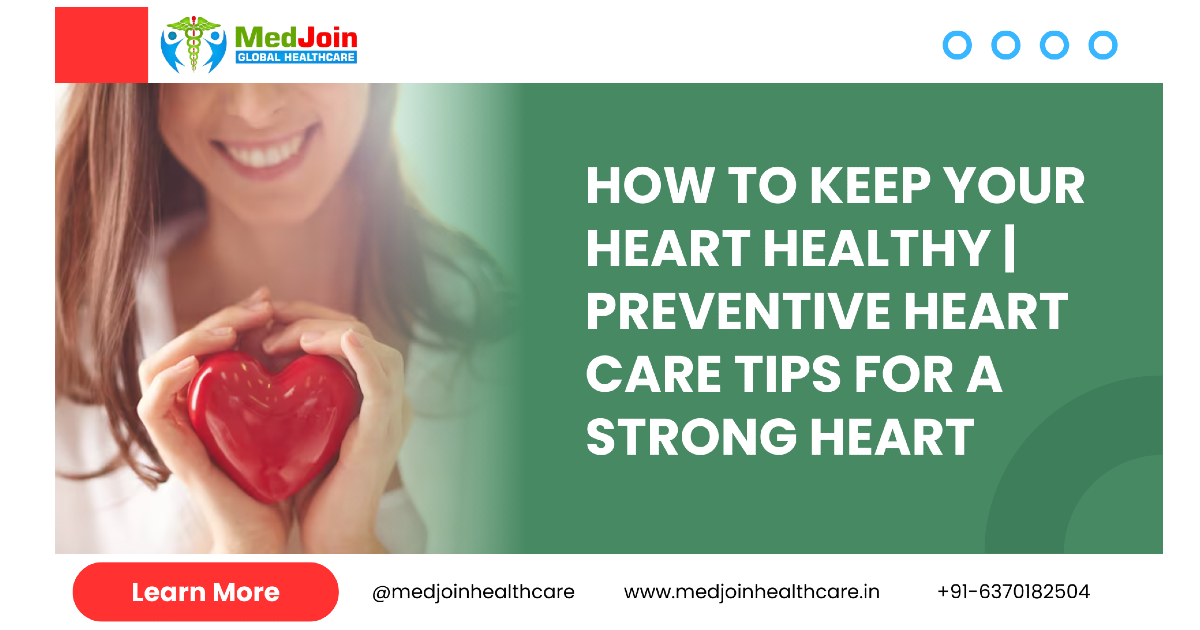
The human heart is a remarkable organ, tirelessly pumping blood, oxygen, and nutrients throughout the body. Yet, despite its resilience, heart disease remains one of the leading causes of death worldwide. The good news is that many cardiovascular conditions are preventable through lifestyle choices, early detection, and proactive care. Preventive heart care is not just about avoiding illness—it is about cultivating lifelong habits that allow your heart to thrive.
This comprehensive guide explores practical steps, lifestyle modifications, medical check-ups, and holistic strategies to keep your heart strong and healthy.
Why Heart Health Matters
The heart beats approximately 100,000 times a day, circulating blood through nearly 60,000 miles of vessels. It is central to life, yet it is vulnerable to risk factors such as high blood pressure, high cholesterol, smoking, diabetes, obesity, stress, and sedentary lifestyles.
Key statistics to consider:
- Cardiovascular diseases (CVDs) are responsible for nearly 18 million deaths globally every year.
- 80% of heart diseases and strokes are preventable with timely interventions.
- People with uncontrolled diabetes or hypertension are at 2-3 times higher risk of heart attacks.
Preventive heart care focuses on reducing risks before they manifest into disease. By maintaining healthy routines, you safeguard not just your heart but also your overall longevity and quality of life.
1. Nutrition: Feeding Your Heart the Right Way
Your diet directly influences cholesterol levels, blood pressure, weight, and overall cardiac function.
Heart-Healthy Eating Tips:
- Adopt a Mediterranean-style diet – rich in vegetables, fruits, whole grains, legumes, nuts, and olive oil.
- Limit unhealthy fats – Avoid trans fats found in processed snacks, fried food, and baked goods. Instead, include healthy fats from avocados, nuts, and fish.
- Choose lean protein – Incorporate fish (especially salmon, sardines, mackerel), poultry, and plant-based protein sources like beans and lentils.
- Control portion size – Overeating increases strain on the heart. Use smaller plates, eat slowly, and recognize satiety cues.
- Cut down on sugar and refined carbs – Excess sugar contributes to obesity, diabetes, and increased heart disease risk.
- Eat more fiber – Oats, barley, apples, and beans help reduce cholesterol levels naturally.
Salt and Blood Pressure
Excessive salt consumption raises blood pressure, one of the leading risk factors for heart disease. Aim for less than 2,300 mg of sodium per day (about one teaspoon of salt).
2. Physical Activity: Exercise as a Heart Protector
Your heart is a muscle—it becomes stronger and more efficient with regular exercise.
Recommended Activity Levels:
- At least 150 minutes per week of moderate-intensity aerobic exercise (walking, cycling, swimming).
- Or 75 minutes per week of vigorous-intensity activity (running, aerobics).
- Include muscle-strengthening activities at least twice per week.
Heart Benefits of Exercise:
- Improves blood circulation.
- Reduces bad cholesterol (LDL) while boosting good cholesterol (HDL).
- Controls weight and reduces obesity risk.
- Lowers blood pressure and blood sugar levels.
- Reduces stress and improves mental health.
Even small changes help—taking stairs, walking instead of driving short distances, or stretching at work all contribute to heart health.
3. Weight Management and Obesity Control
Excess weight puts stress on the heart, increases blood pressure, and is linked to diabetes.
- Maintain a Body Mass Index (BMI) between 18.5 and 24.9.
- Aim for a healthy waist circumference (less than 40 inches for men and 35 inches for women).
- Focus on gradual, sustainable weight loss through balanced diet and regular activity rather than crash diets.
4. Avoiding Tobacco and Alcohol
Tobacco
Smoking damages blood vessels, lowers oxygen levels, and significantly increases the risk of heart attacks and strokes. Quitting smoking immediately benefits the heart, reducing risks within weeks.
Alcohol
Excessive drinking raises blood pressure, weakens heart muscles, and adds empty calories.
- Moderation is key: Up to one drink per day for women and two for men.
- Avoid binge drinking, which is particularly harmful to cardiovascular health.
5. Stress Management and Mental Well-being
Chronic stress triggers the release of cortisol and adrenaline, which increase blood pressure and heart rate. Stress also encourages unhealthy coping behaviors like overeating or smoking.
Stress-Relief Practices:
- Mindfulness and meditation – Calms the mind and regulates blood pressure.
- Deep breathing exercises – Simple yet powerful stress relievers.
- Adequate sleep – Adults need 7–8 hours per night. Poor sleep increases the risk of heart disease.
- Hobbies and social connections – Engaging in meaningful activities helps reduce emotional strain.
6. Regular Health Check-ups and Screening
Many heart conditions are silent until they become severe. Preventive check-ups detect problems early.
Important Screenings:
- Blood pressure check – At least once every 1–2 years, more often if high.
- Cholesterol test – Every 4–6 years, starting at age 20.
- Blood sugar test – Regularly, especially if overweight or with family history of diabetes.
- Electrocardiogram (ECG) and echocardiogram – For those with symptoms or risk factors.
Family History Consideration
If heart disease runs in your family, early and frequent screenings are even more critical.
7. Preventive Medications and Vaccinations
For individuals at higher risk, doctors may recommend:
- Statins to manage cholesterol.
- Aspirin therapy (only if prescribed) to reduce clot formation.
- Blood pressure medications for hypertension.
- Diabetes medications to control blood sugar.
Vaccinations such as the flu shot are also important, as flu infections can strain the heart.
8. Women and Heart Health
Women often experience different heart attack symptoms compared to men—such as fatigue, nausea, jaw pain, or shortness of breath rather than classic chest pain.
Preventive care must take these differences into account, encouraging women to prioritize screenings and lifestyle modifications.
9. Myths About Heart Health
- Myth: “I’m too young to worry about heart disease.”
- Heart disease can develop silently from childhood due to poor habits. Prevention should begin early.
- Myth: “Thin people don’t get heart disease.”
- Even people with normal weight may have high cholesterol, hypertension, or diabetes.
- Myth: “I feel fine, so I don’t need check-ups.”
- Many heart problems show no symptoms until advanced stages. Preventive screenings are vital.
10. Holistic Approach: Mind, Body, and Lifestyle
True preventive heart care is not a single action but a combination of consistent healthy habits. Balance is key:
- Nourish your body with wholesome food.
- Stay active daily.
- Protect mental well-being.
- Stay informed and proactive with medical check-ups.
Conclusion: Your Heart, Your Responsibility
Keeping your heart healthy is a lifelong commitment, but it is also one of the most rewarding investments you can make. Preventive heart care is about choices—choosing a balanced diet, regular exercise, stress management, and timely medical attention. By adopting these practices, you not only reduce the risk of heart disease but also enhance your overall quality of life.
Your heart works tirelessly for you every day—give it the care, respect, and attention it deserves. A strong heart means a longer, healthier, and more vibrant life.
For more go through this link and Keep your heart healthy.






